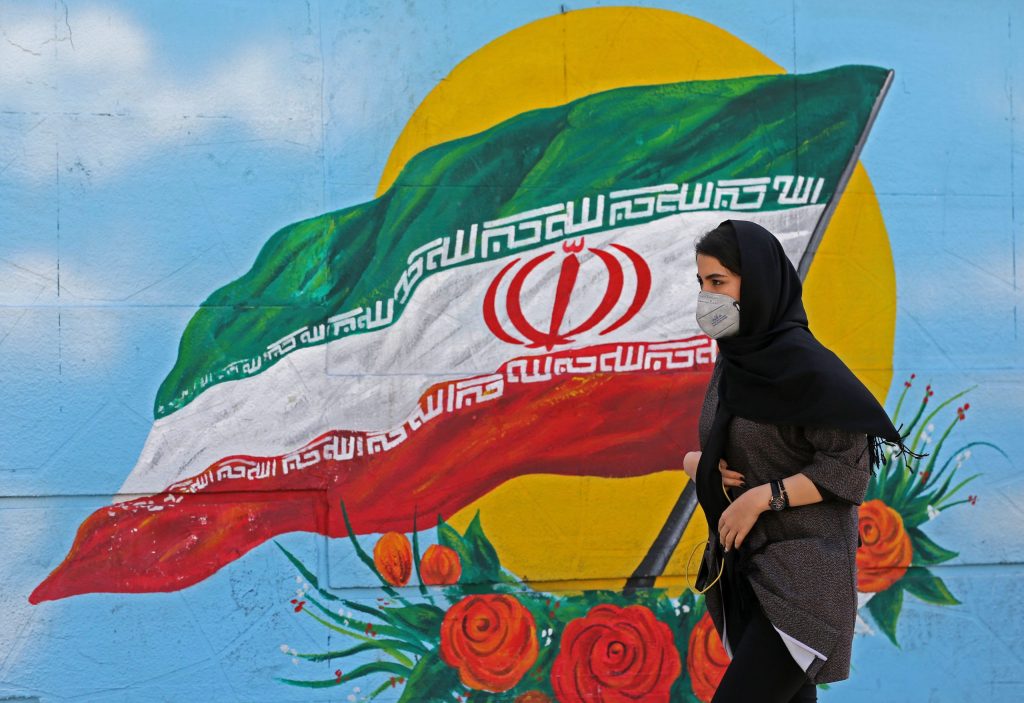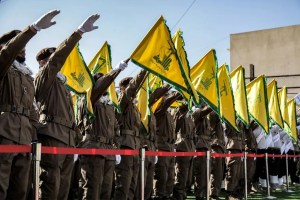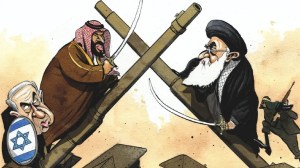If coronavirus has taught us anything it’s that if you really want to understand something of a state’s essential character, look at how it battles a pandemic. This crisis has divided humanity up variously, but most markedly along national, if not occasionally stereotypical, lines.
Germany reacted with organization and efficiency; it has made, on balance, a good fist of it. The UK wavered; it twisted and turned and did stuff on the hoof. Things could be a lot better, but they could also be a lot worse. Some countries have defied expectation. Greece, for example, locked down quickly and comprehensively: it kept mass death at bay. But in a sense, all this revealed is that — until the really good weather hits at least — the country retains muscle memory from the days of the 1967-74 Junta. This is not the first time in living history that Greeks have had to obey an overbearing state.
What happens, then, if what characterizes your government is sadism, an addiction to conspiracy theories and incompetence? It’s the question that Iranians have faced since coronavirus hit. At first, the government tried to deny it was all happening — they kept religious shrines open; they enforced no restrictions; they enabled the virus.
Infections soared. For a while, the country’s death rate was exceeded only by Italy and China. The government belatedly locked people down; things got better. Now, with 6,340 fatalities, they still have the 10th highest number globally.
You’d think this would be enough to teach people in government a few lessons. But that would be to misunderstand the nature of the regime. As far back as mid-April President Hassan Rouhani was urging businesses to re-open. He’s desperate. According to his spokesman Ali Rabiei, the COVID-19 crisis has affected 3.3 million official employees through dismissal, suspension or reduction of wages, with a further four million self-employed also suffering. And this is on top of the existing hardship Iran is facing because of US sanctions. Soon the oil price drop will kick in. In what is the most indigestible of ironies, it is the government, not the people, that now agitates for greater societal freedoms in Iran.
Right now, Iran’s health sector is begging the authorities to think medically not ideologically. But with the Mullahs, if it’s not religion, it’s politics. Each year the government introduces an official slogan to set the political agenda. In his annual Nowruz (Persian new year) TV address in March, Supreme Leader Ayatollah Khamenei was clear on what he wanted for this year. ‘Last year’s slogan was Boosting Production,’ he said. ‘This year is the year of Surge in Production. This is the slogan of the year. Officials should act in a way that production will witness a surge, God willing, and that there will be a tangible change in the lives of the people.’
You obviously can’t surge production by staying home. So the authorities have got creative. Following the meeting of the National Headquarters to Fight Coronavirus on April 26, Rouhani said Iran would be divided into three quarantine zones; some measures would remain in place, but life will begin to return to normal. The people are skeptical.
Meanwhile, the system is creaking. Political infighting is growing. Hardliners are trying to use the crisis to increase their power; moderates are trying to stop people dying. Rouhani is trapped between the former, who self-interestedly criticize the government’s actions, and civil society, justifiably outraged at the endless lies.
While the regime blunders, Iranian doctors are stepping up. This will only further imprint onto the minds of the people the divide between those that rule and those that do. It will deepen the gap between the hardliners fretting about the succession of the Supreme Leader (Khamenei is 81), on the one hand, and the majority of the population who want to live in normal life, on the other.
When things go wrong the government usually just blames the United States. Khamenei even intimated that the virus might be US made. But this is wearing thin. As Clément Therme, a post-doctoral research fellow at the Center for International Studies (CERI) based at Sciences Po Paris, told me recently:
‘Anti-US propaganda is not helping the establishment to convince its own population that its management of the health crisis was designed with their protection in mind. The authorities are still focused on the survival of the regime over anything else — and it shows.’
Right now, like all authoritarian states, Iran has received a coronavirus ‘bonus’. When people are locked down they can’t protest in the street. But the lockdown will end, the people will return. And now they can add to the list of grievances against those who oppress them.
As Therme concludes: ‘if the virus seems anti-revolutionary in the short-term, it is likely that in the long-term it will only serve to further deepen the credibility crisis of the Islamic Republic.’ For many Iranians, the hope will be that it does so irretrievably.
This article was originally published onThe Spectator’s UK website.


















